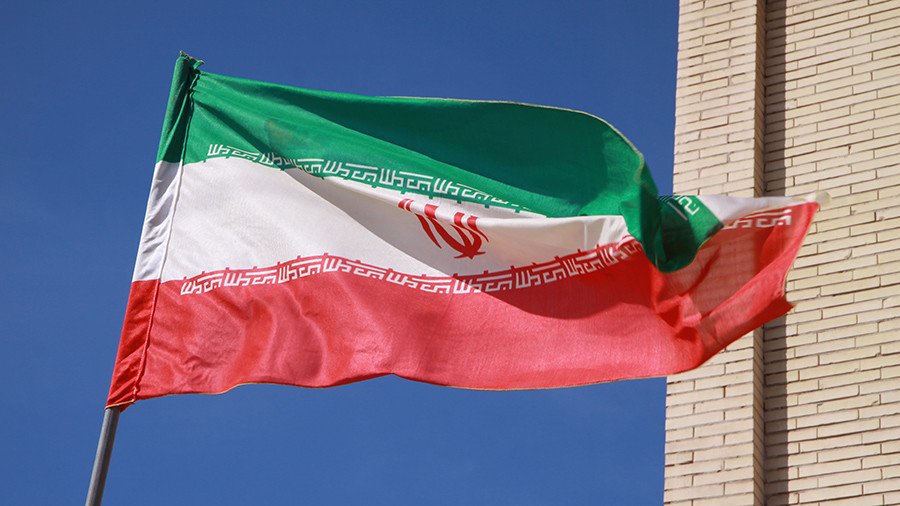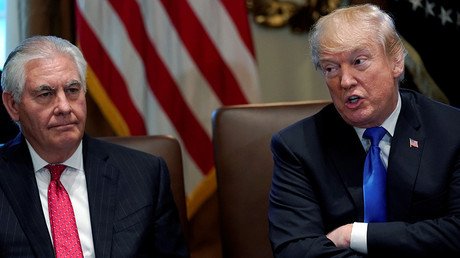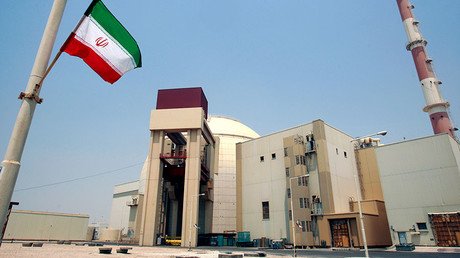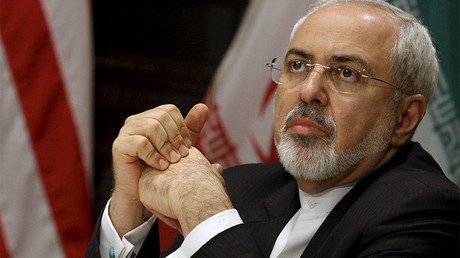Trump decided to extend sanction relief for Iran – report

President Donald Trump has reportedly decided to extend sanctions relief to Iran, upholding Washington’s end of the P5+1 nuclear deal, but it is likely that new sanctions targeting Iranian businesses will also be implemented.
Trump’s Friday announcement will “reflect frustration at European allies and at Congress” for dragging their feet over proposed legislative changes that would call for stricter enforcement of the Joint Comprehensive Plan of Action (JCPOA), according to Bloomberg News foreign policy reporter in Washington.
READ MORE: Iran may speed up uranium enrichment if Trump re-imposes sanctions
Although he will uphold the agreement by waiving sanctions targeting Iran’s access to the international financial system, Trump is also expected to reinstate sanctions targeting Iranian firms and individuals that were scrapped as part of the 2015 nuclear deal, AP reported, citing six people briefed on the matter.
President Trump has decided to extend sanctions relief to Iran -- our story moving now. Decision made this evening and White House will announce plan mid-morning tomorrow.
— Nicholas Wadhams (@nwadhams) January 12, 2018
Trump will reportedly point to Iran’s ballistic missile testing, human rights violations and alleged support for terrorism as justification for the new sanctions. Washington has used the recent demonstrations in Iran to call into question the legitimacy of the Islamic Republic’s government, going so far as to convene an emergency UN Security Council meeting to discuss Iran’s internal issues.
Trump’s expected announcement comes a day after Britain, France and Germany called on Washington to uphold the nuclear deal. The appeal was made after the Iranian Foreign Minister met with EU foreign ministers and EU foreign policy chief Federica Mogherini in Brussels on Thursday. Zarif also made a brief stop in Moscow on his way to Brussels on Wednesday.
US Secretary of State Rex Tillerson said last week that he was working with Congress on legislative changes that would “strengthen the way the US enforces the agreement.” Brokered and signed by the US, UK, Russia, France, China, and Germany, the JCPOA places limitations on Iran’s nuclear energy program in return for the lifting of economic sanctions on Tehran.
Trump has previously described the nuclear agreement as “the worst deal ever negotiated,” even though Iran has been repeatedly found to be in full compliance. In October, the International Atomic Energy Agency (IAEA) reaffirmed that all nuclear-related commitments undertaken by Iran under the JCPOA had been implemented, stressing that Tehran is subject to the “world’s most robust nuclear verification regime” and that so far the IAEA has “had access to all locations it needed to visit.”
In accordance with a mechanism set up by Congress, the nuclear agreement has to be re-assessed by an American president every 90 days.















